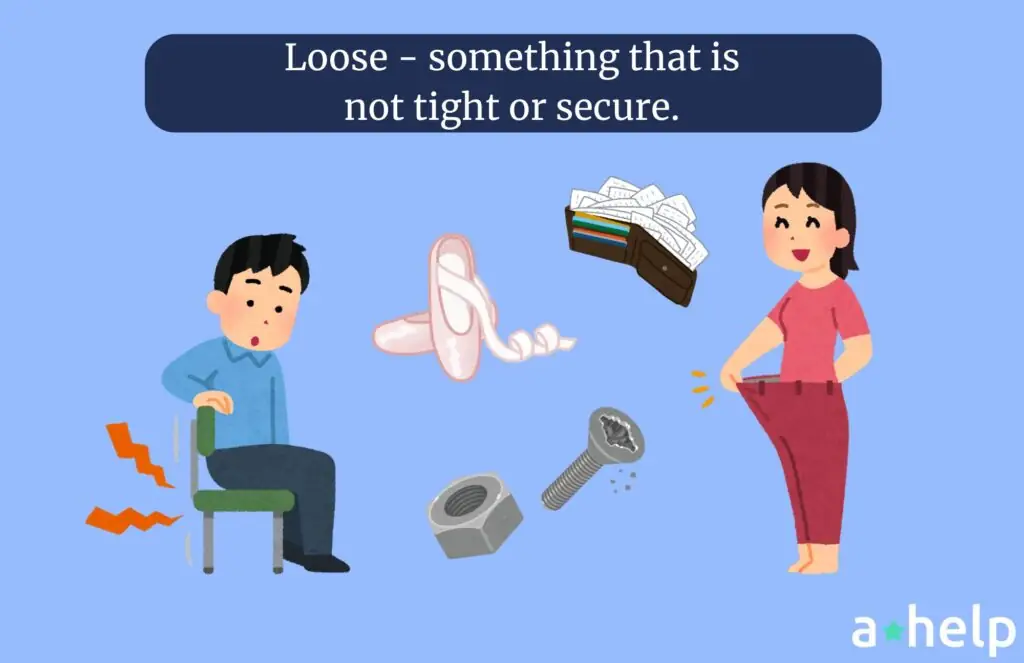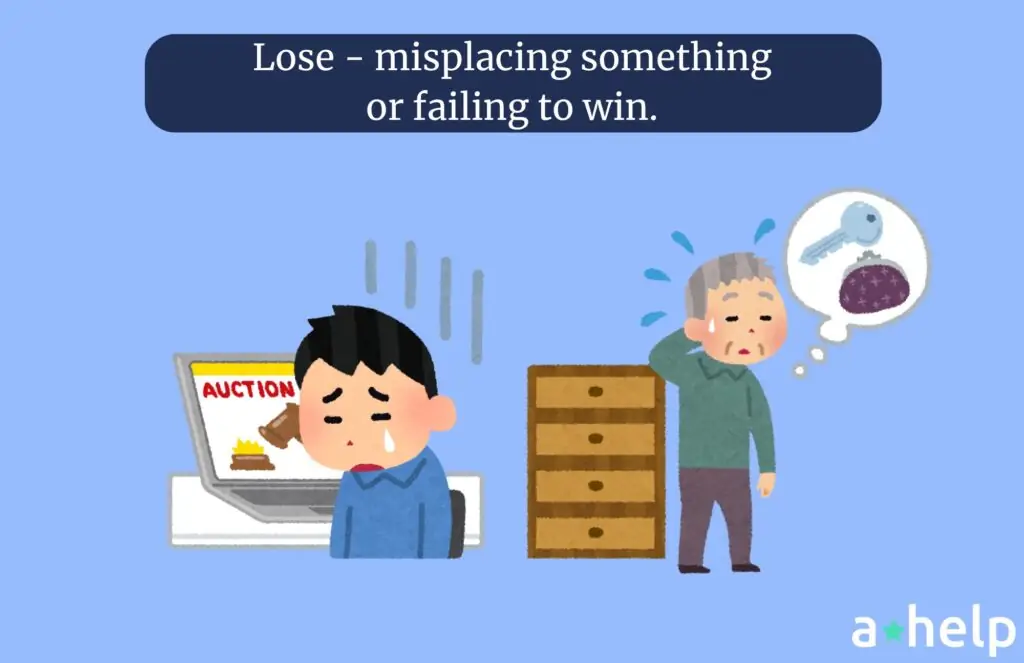The words “loose” and “lose” are often confused due to their similar spelling and pronunciation (though, not a case that a spelling checker can’t catch). However, they have different meanings. Let’s figure it out.

✅ AI Essay Writer ✅ AI Detector ✅ Plagchecker ✅ Paraphraser
✅ Summarizer ✅ Citation Generator
“Loose” is an adjective that describes something that is not tight or secure, while “lose” is a verb that means to misplace something or fail to win.
The confusion usually comes up because the pronunciation of “lose” (with a single ‘o’) sounds like it should have a double ‘o’, which leads people to use “loose” in its place by mistake. But it’s okay, we’re here to help you understand the difference between the two with simple explanations and examples.
Using ‘Loose’
The word “loose” is an adjective that describes something that is not tight or secure. It is often used to refer to clothing that is not fitting closely to the body, objects that are not firmly attached, or situations where something is not strictly controlled or organized.

Here are some examples of sentences using “loose” correctly:
- “The screws in the chair were loose, so it wobbled when I sat on it.”
- “She prefers wearing loose clothing during the summer for comfort.”
- “The dog managed to escape because the gate was loose.”
- “He had a loose understanding of the rules, which led to some confusion.”
- “The artist used a loose brushstroke technique to create a sense of movement in this painting.”
In each of these sentences, “loose” is used to describe something that is not tightly held, fitted, or controlled, whether it’s a physical object or a concept.
Using ‘Lose’
The verb “lose” is used to describe the action of misplacing something or failing to win. It can refer to physical objects, such as losing keys, or abstract concepts, such as losing a game or losing hope.

Here are some examples of sentences using “lose” correctly:
- “I hope I don’t lose my wallet again.”
- “The team was disappointed to lose the championship.”
- “She was afraid of losing her way in the dark forest.”
- “He didn’t want to lose the opportunity to travel abroad.”
- “If we don’t hurry, we’ll lose our chance to see the movie.”
In these examples, “lose” is used to indicate the absence or lack of something, whether it’s a physical item, a competition, or an opportunity.
Common Phrases with “Lose” and “Loose”
We’ve already established that the words “lose” and “loose” are often confused due to their similar spelling, but they have different meanings and uses. Let’s look at some sentences that will help you get it once and for all.
We will start with the word ‘lose’. It is often used in idioms and such phrases as below:
Lose a match – To be defeated in a game or competition.
Lose count – To forget the number of items in a sequence.
Lose ground – To fall behind in a race or competition.
Lose heart – To become discouraged.
Lose one’s temper – To become angry.
Lose sleep – To be unable to sleep due to worry or anxiety.
Lose track – To forget or be unaware of the current situation.
Lose weight – To reduce one’s body weight.
Lose touch – To stop communicating with someone.
Lose sight of – To forget or ignore the important aspects of something.
Lose face – To be embarrassed or humiliated.
Lose steam – To run out of energy or enthusiasm.
Lose time – To waste time or fall behind schedule.
Lose one’s way – To become lost or disoriented.
Lose hope – To become pessimistic about a situation.
Now, let’s move on to ‘loose’. It is often used as an adjective or an adverb in sentences:
Loose change – Coins that are not in a wallet or purse.
Hang loose – To relax or take it easy.
Loose cannon – A person who is unpredictable and can cause damage if not kept in check.
Play fast and loose – To behave recklessly or without regard for the rules.
Loose lips – A tendency to talk too much, especially about sensitive information.
On the loose – Free and not under control, often used to describe a criminal who has escaped.
Cut loose – To release or free from restraints.
Break loose – To escape from confinement.
Loose ends – Unfinished details or unresolved issues.
Loose talk – Careless or thoughtless speech.
Fast and loose – Acting in a reckless or irresponsible manner.
Loose grip – Not holding onto something tightly.
Loose-fitting – Clothing that is not tight on the body.
Loose tongue – A tendency to speak without thinking.
Set loose – To release or let go.
See, it wasn’t that hard. We hope now you know the difference between the words ‘lose’ and ‘loose’.
FAQ
Follow us on Reddit for more insights and updates.





Comments (0)
Welcome to A*Help comments!
We’re all about debate and discussion at A*Help.
We value the diverse opinions of users, so you may find points of view that you don’t agree with. And that’s cool. However, there are certain things we’re not OK with: attempts to manipulate our data in any way, for example, or the posting of discriminative, offensive, hateful, or disparaging material.